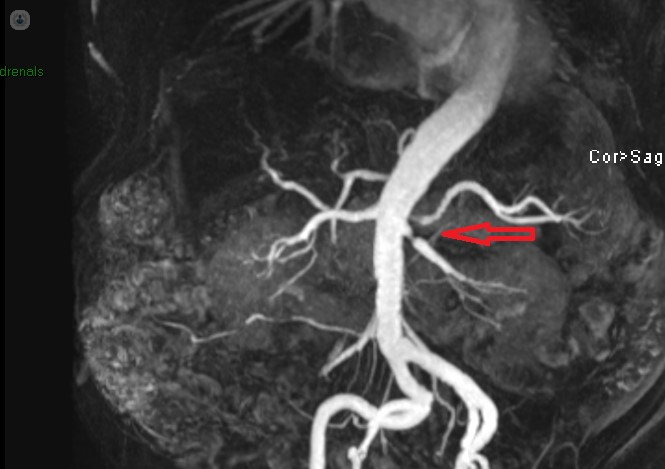How does high cholesterol affect your kidneys?
Autore:High cholesterol on its own does not directly affect the kidneys but it can affect the blood supply. Cholesterol plaque can clog the renal arteries and cut off blood flow to the kidneys, which can result in a loss of their function. We’ve asked consultant nephrologist Dr Christopher Lawrence to explain how high cholesterol can put a patient at high kidney disease risk and whether any damage made to the kidneys can be reversed.

What kinds of kidney problems can high cholesterol lead to?
The indirect effects of cardiovascular disease can lead to the heart working less well as a pump, providing the kidneys with insufficient blood, nutrients and oxygen resulting in the nephrotic syndrome.
The direct effects of cholesterol on the blood supply to the kidneys can result in what we term atherosclerotic renovascular disease (ARVD). This is a narrowing of the blood supply to the kidneys.
Atherosclerotic renovascular disease is more common in older male smokers. The condition can present with deteriorating kidney function with ‘bland urinary sediment.’ In other words, the urine does not normally contain blood and protein on the dipstick test.
Sometimes the condition is suspected when the kidney function deteriorates after certain blood pressure tablets are started. These are usually an angiotensin-converting enzyme inhibitor, like ramipril, or angiotensin receptor blocker, like losartan.

Image of magnetic resonance angiogram showing a tight early truncal stenosis (narrowing) of the left renal artery.
Is this damage reversible?
The damage caused to the kidneys by cardiovascular disease generally requires carefully balancing the requirements of the heart and the kidneys. This is done through dietary salt restriction, superb control of diabetes and through fine-tuning of the relevant medicines used to improve the heart function.
Atherosclerotic renovascular disease can sometimes be treated with a balloon or a stent, very similar to how angina is treated. The process of atherosclerosis is usually considered to be a progressive condition. However, when a narrowing (like the one in the image above) occurs, it is possible, in carefully selected cases, to intervene by performing an angiogram to open up the blood supply and restore blood flow to the kidney. This hopefully reduces the requirement for blood pressure tablets and perhaps slow the deterioration in the kidney function.
The scientific evidence for intervening on renal artery narrowing is not particularly supportive. This does not mean that it is not helpful for some people, but it does mean that it will not be the right option for everyone.
Read more: how to manage high cholesterol and kidney disease


